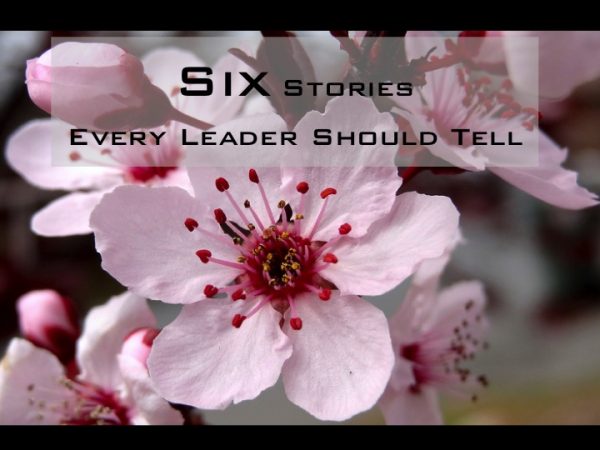Organizations in virtually every sector have access to data that can offer an advantage for developing new products, helping coworkers reach their potential, and improving customer experience. Companies on average manage three times more data than they did five years ago. Many organizational leaders devote valuable time diving into these pools of data searching for patterns, problems, or potential opportunities. This analytical work can be energizing when it reveals nuggets of information to gain a competitive edge. But leaders who know how to communicate their relevant data through a story structure have better odds of convincing others to take action.
Read moreThe organization I lead generates a bunch of data. We provide leadership development in under-resourced populations, so we have data about the number of leaders that are engaged in our programs. We have data about the number of events we conduct each quarter. We have cool data about the impact of our services on leaders. But when we began telling “Jairus’ story” to our stakeholders, the data has found a voice.
Read moreMarketing is not my expertise. Every day solicitors come knocking via my inbox with the marketing “offer you just can’t refuse.” While I don’t know much about their complex discipline, I do know our small organization does not have money to waste. I get heartburn when other leaders spend precious dollars on marketing efforts only to get little or no results. And when they do receive the final reports, they wonder what went wrong, or worse, whether their product is really any good at all. But what if the problem isn’t the product? What if the problem is the way we talk about the product? Can we make marketing simpler?
Read moreOriginally Posted in October 2017 by Evangelical Missions Quarterly (EMQ) —Reviewed by Benjamin Espinoza, PhD student, Michigan State University. Story has become a topic of interest for many scholars, pastors, and missionaries. As Christians, we are called to be participants in the greatest story of all time, the gospel. Rick Sessoms estimates that eighty percent of the world’s people are “story-centric learners,” meaning they learn through storytelling (drama, art, music, etc.). This provides a unique opportunity for us to ponder how we can take the gospel to the ends of the earth using story-based methods and leadership approaches. Sessoms has written an insightful volume on story-centric, Christ-centered leadership which will equip a new generation of Christian leaders to share the greatest story of all time.
Read moreCultivating Christ-centered Leaders in a Storycentric Generation Originally Posted on January 26, 2017 by Missio Nexus This is a long overdue book about leadership in a world suffering from future shock – a world changing so rapidly that no one can keep up. Changes are happening so quickly that most of the time it feels like we are living on the starship Enterprise leaping into cyberspace where no man has gone before. Facebook, YouTube, Twitter, Instagram, podcasts and live streaming of sermons, university-accredited online theological degrees, discipleship training, and leadership development provide for a quick, inexpensive means to churn out vast numbers of new leaders for the next generation – the demand is great but the workers are few. Print Version Kindle Version While we now have electronic Bibles flying around the world instantly we may mistakenly think that the digital world will solve most of our most pressing problems of making disciples and leaders in a world where our wrist watches seem to be spinning out of control. Much of the time there is great pressure for Christian leaders to communicate with others at superhuman speed within a context of adapt or die. Now, within this new paradigm of the 21st Century, Rick Sessoms steps into the ring with a novel approach to leadership development. He is advocating going back to basics with an approach Jesus modeled – developing and mentoring leaders face to face using a storycentric approach. After all, Jesus was a brilliant storyteller. He used a
Read moreAnnette Simmons’ Whoever Tells the Best Story Wins is the latest in a string of recent books that advance the lesson that Wicked demonstrates: stories have powerful potential to shape people.
Read moreWho are Oral Learners?
Statistics conservatively suggest that more than 70% of all people in the world today – more than 2 of every 3 – are “oral learners.” “Oral learners” is not a familiar term. When I use it, some people look at me and say, “Do you mean ‘moral learners?”
No, “oral learners.” A simple dictionary definition of an oral learner is one that relies upon spoken rather than written communication. Before writing was invented, everyone lived by spoken communication. They read nothing, took no notes, never looked anything up. For those with papers due this week, that sounds like a pretty sweet deal.
Read more



